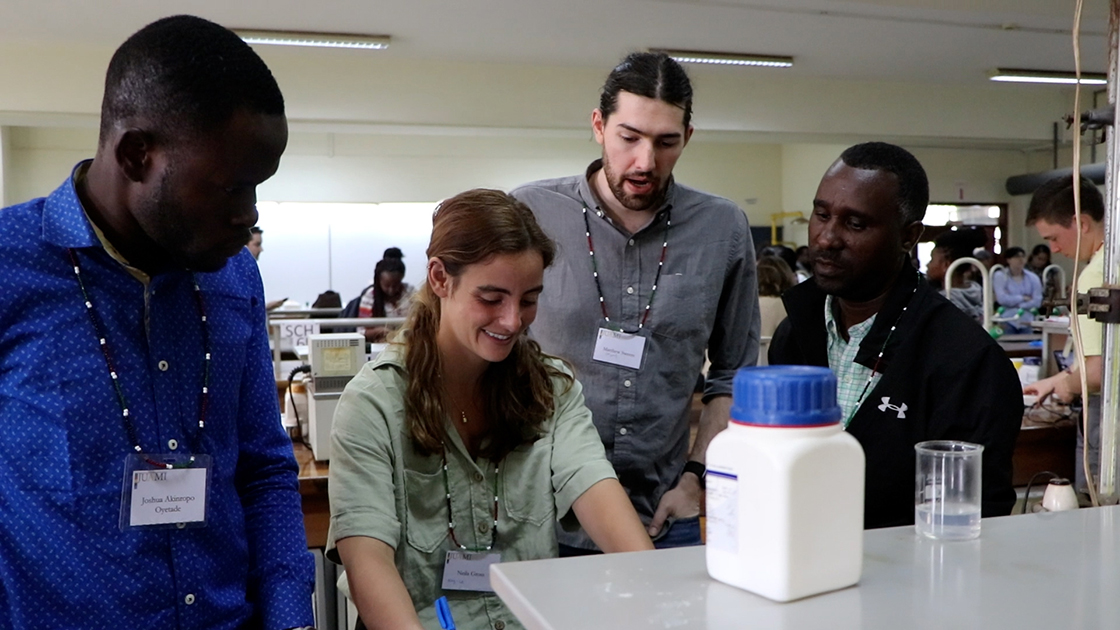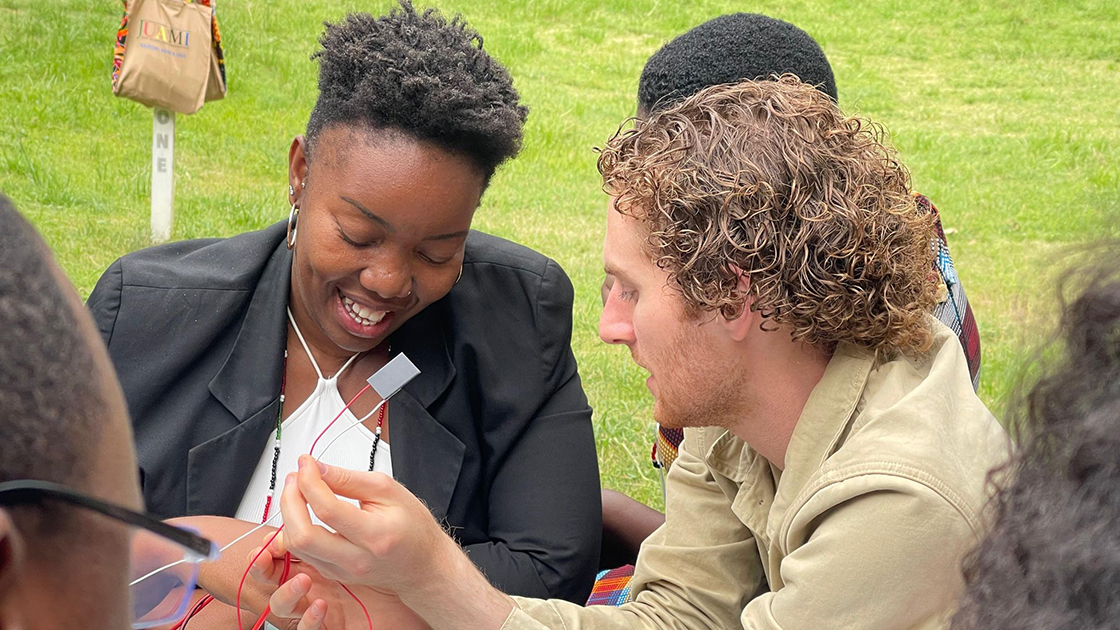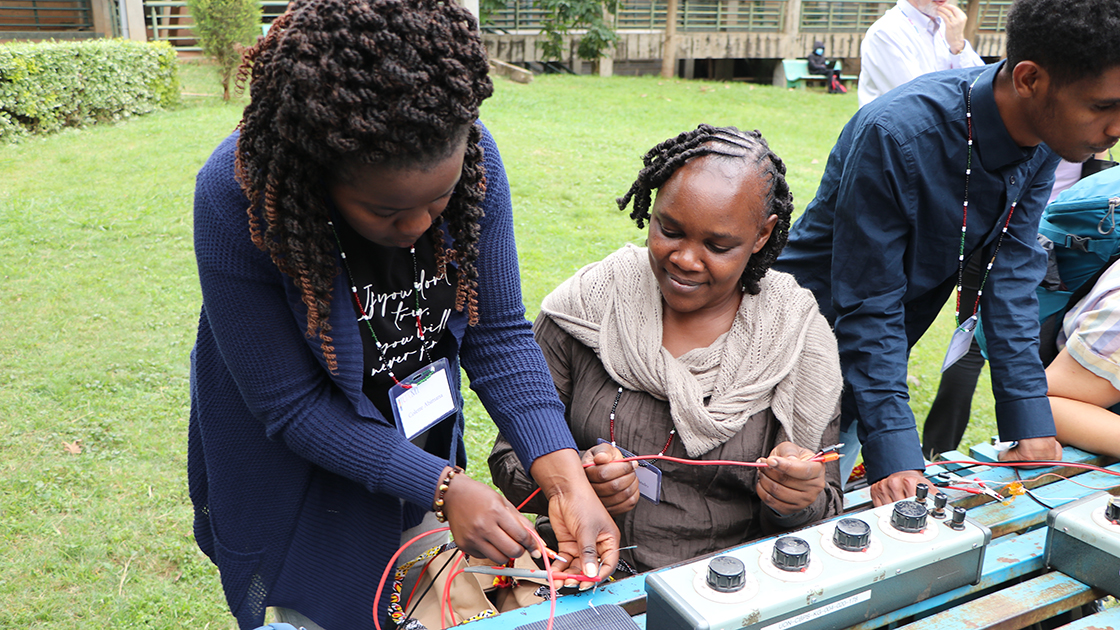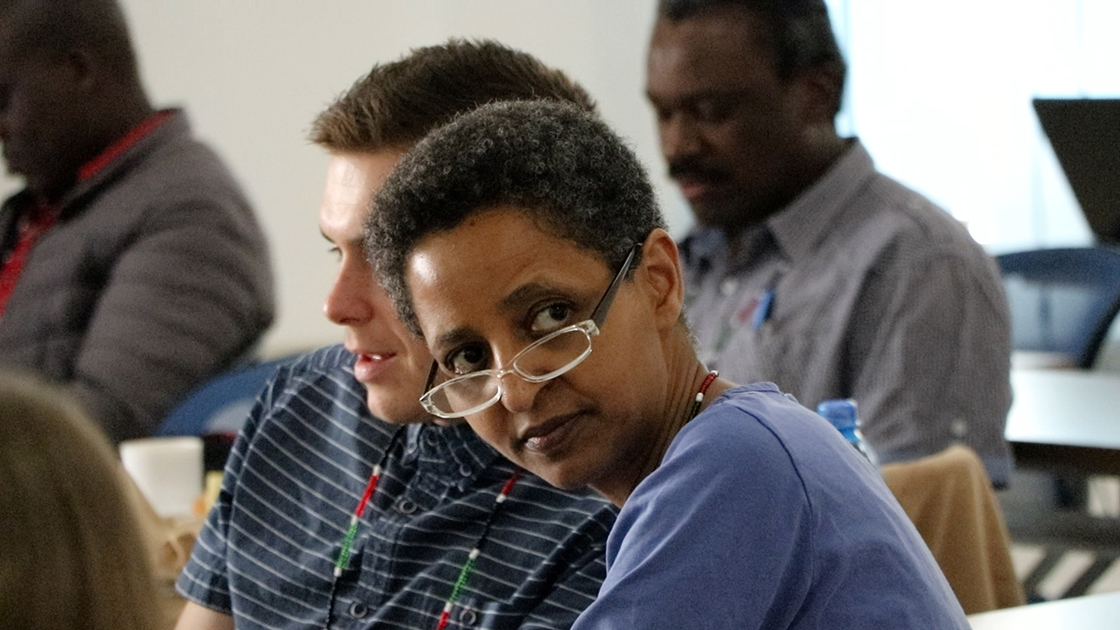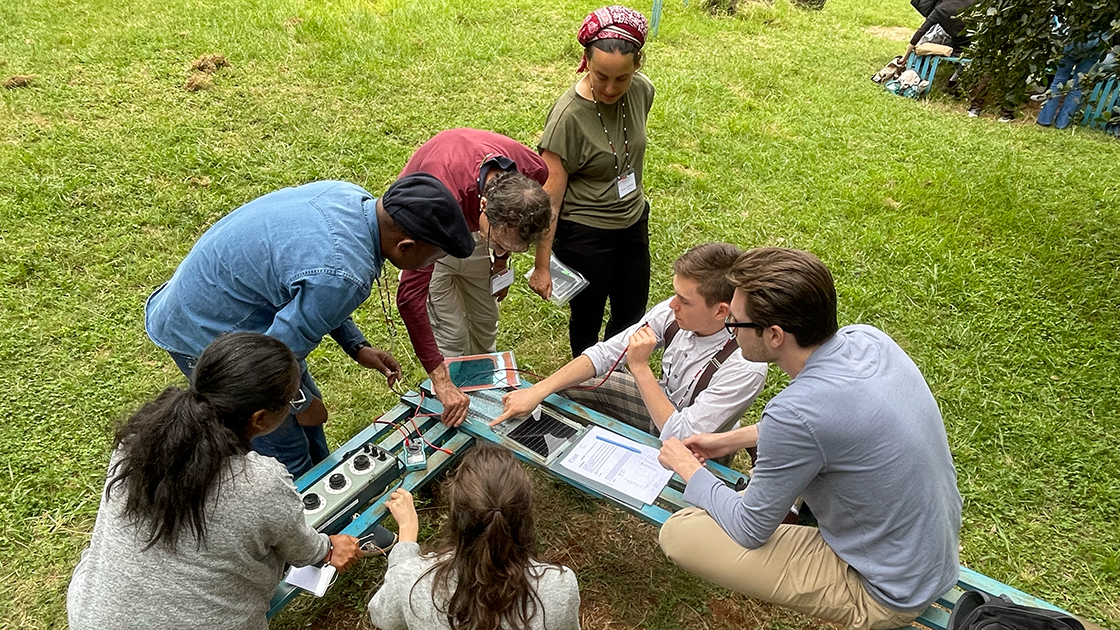McCormick Researchers Connect with Counterparts in Africa for JUAMI 2023
JUAMI held its latest program in Kenya, focusing on sustainable energy
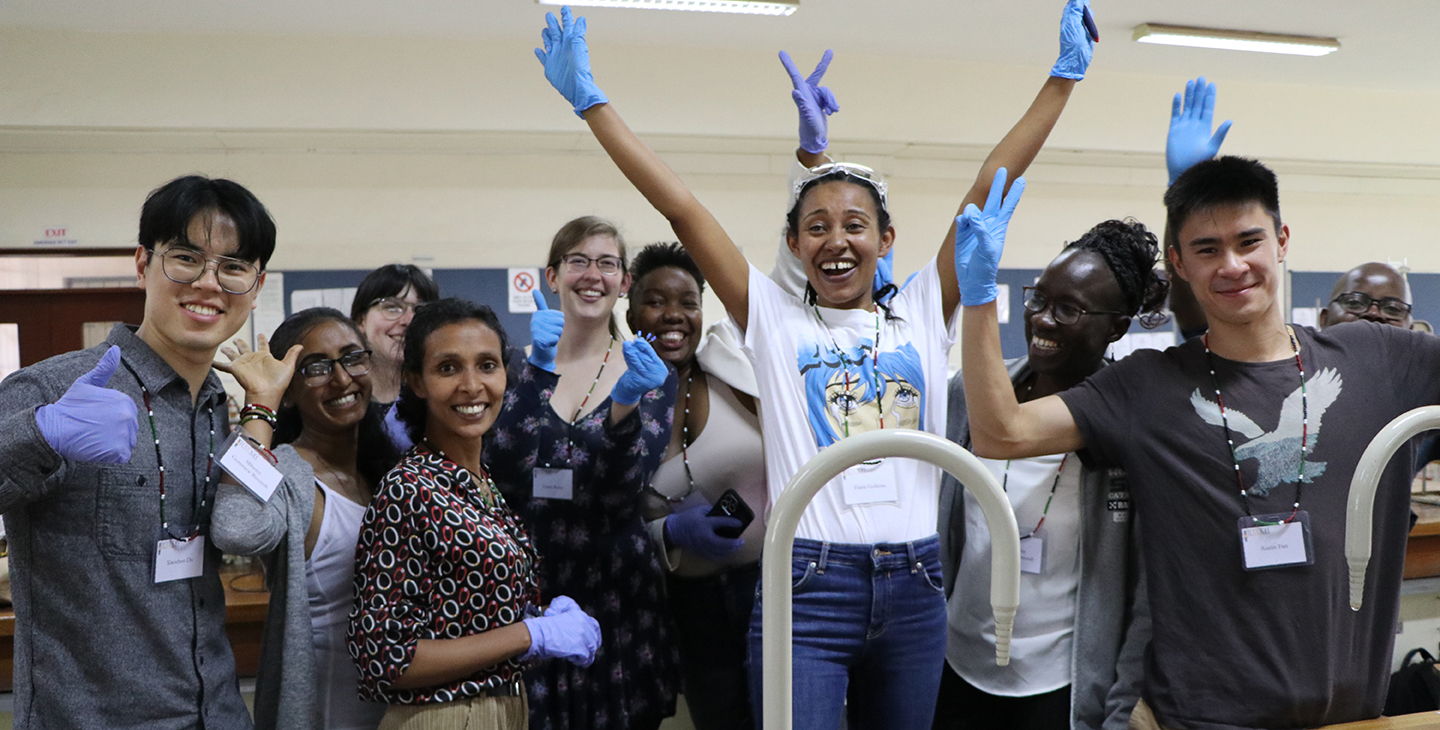
Since its establishment in 2012, the Joint Undertaking for an African Materials Institute (JUAMI) has fostered valuable collaborations between US-based materials science researchers and their counterparts in Africa.
Northwestern Engineering plays a key role in the effort.
Led by Professor Sossina Haile, JUAMI held its latest program June 18-30 in Nairobi, Kenya. The event was focused on the theme “Materials for Sustainable Energy,” drawing world-renowned experts from across the globe to deliver lectures on frontier research topics and teach fundamentals through hands-on laboratory activities. Supported by the National Science Foundation, JUAMI connects researchers from the US and Africa at an early stage of their scientific careers with the objective of creating lasting collaborations. Graduate students learn together in a content rich, multi-cultural, vibrant setting, exchanging perspectives on how to tackle pressing problems in global sustainability.
In addition to the NSF support for the program, McCormick Global Initiatives (MGI) provided travel support for three McCormick faculty and two McCormick PhD students that attended and presented. MGI provides opportunities, awards, and resources to help the school’s community engage and network in global scholarly activities.
“JUAMI workshops stand apart from typical conferences,” said Haile, Walter P. Murphy Professor of Materials Science and Engineering at the McCormick School of Engineering. “Our speaker program is packed with the stars in the field, but beyond that, we build community and support student groups in pursuit of transnational projects that outlive the two-week workshop. In the 10 years since we’ve started, we’ve seen some truly exhilarating outcomes from the ideas seeded over late-night conversations, from high quality, low-cost experimental tools, to open computing resources, to mentorship programs. I can’t wait to see what our time in Nairobi spawns.”
In the 10 years since we’ve started, we’ve seen some truly exhilarating outcomes from the ideas seeded over late-night conversations, from high quality, low-cost experimental tools, to open computing resources, to mentorship programs. I can’t wait to see what our time in Nairobi spawns.
Sossina HaileWalter P. Murphy Professor of Materials Science and Engineering
Along with Haile, the Northwestern Engineering faculty was represented by Jennifer Dunn, associate professor of chemical and biological engineering, and G. Jeffrey Snyder, professor of materials science and engineering.
Northwestern Engineering student researchers were also involved, including Matthew Sweers and Jenna Trost. Sweers said he will remember the experiences he had meeting with people from a wide range of backgrounds at the gathering, which had students and faculty attending from schools including the University of Chicago, Columbia University, MIT, and Princeton University, among others. Institutions from Africa included but were not limited to the Multimedia University of Kenya, the University of Nairobi, and the Botswana Institute for Technology Research and Innovation.
“One of the great things about the program is that most attendees have dedicated their careers to research into materials that can help solve our energy and climate crisis,” said Sweers, a materials science and engineering PhD student. “This commonality relieved some of the inherent stress when meeting new people — we already knew that we had a major part of our lives in common with others. Beyond that, everyone who attended the event seemed very happy to be there and to meet new people.”
Trost, a chemical engineering PhD student, relished the chance to learn about electrochemistry, batteries, membranes, and material characterization.
“It was very special to engage with and broaden my perspective on other sustainability research,” Trost said. “The days were long but filled with engaging lectures and activities. I know I echo many students when I say despite the long hours, two weeks did not feel like enough time together. Outside JUAMI, I really enjoyed exploring Kenyan culture, nature, and history.”
The two-week program culminated with project proposals given by student teams. Sweers proposed and prototyped a web tool called JUAMICharz (pronounced JUAMI Cares) to connect researchers with available scientific instruments with the goal of decreasing barriers to research progress, primarily for East African students. Sweers’s team is applying for funding and hopes to release a pilot program within the next year.
“We are just one out of a dozen projects coming out of JUAMI this year,” Sweers said. “All of the projects are supported by world-class students and have the potential to tackle real problems. I hope that every team continues to pursue their amazing ideas.”
Trost said the proposal guidelines were designed to be vague, encouraging creativity and ingenuity. Her group hopes to establish women in STEM groups at East African universities.
“We want to encourage women to pursue and stay in STEM disciplines,” Trost said. “Ultimately, we hope to have these groups do outreach with elementary and high schools to encourage young girls to pursue STEM and break down social and cultural stereotypes.”
